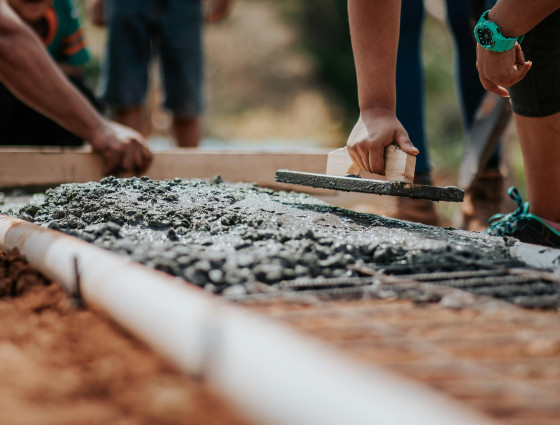
Construction, Building and Trades - Building Labourer
Construction, Building and Trades - Building Labourer
Amber
Building labourers work on building sites. They do a range of tasks to help bricklayers and other construction workers. They use power tools such as drills and special equipment like cement mixers. A lot of their work involves lifting and carrying heavy things. They move equipment and carry bricks to wherever workers need them on site. When lorries deliver supplies, building labourers help to unload them. They take the supplies to the workers or to storage areas.
- Mark out and dig trenches for foundations and drains
- Put up panels to hold concrete in place as it sets
- Join steel sheets to form retaining walls for excavations
- Lay concrete for foundations, floors, and beams
- Keep tradespeople on site supplied with materials, like bricks, mortar, and timber
You could work on a construction site. Your working environment may be at height and outdoors in all weathers. You may need to wear protective clothing.
Most building labourers work between 37 and 40 hours a week. They may have to do overtime to get a job finished. They need daylight to be able to do their job, so they may work later in the summer than in the winter. They may also start work early in the morning.
Starting salary: £17,000
Experienced salary: up to £32,000
There are no set requirements, though it will be helpful if you've got on-site experience or have worked in a builder's merchants or yard. Some employers may require some GCSEs, usually including English and maths, or equivalent or an intermediate apprenticeship.
You could also apply for an apprenticeship. If you have an EHCP you may be able to apply under the DfE exemption which allows the apprentice to use Entry level 3 English and Maths qualifications. The apprentice would have to be component enough to successfully achieve all other aspects of the apprenticeship requirements, become occupationally competent and achieve Entry Level 3 in English and Maths before the end of their apprenticeship. College - you could start off with a Diploma in Preparation for Employment in the Construction Industries Level 1 if you have no formal qualifications.
